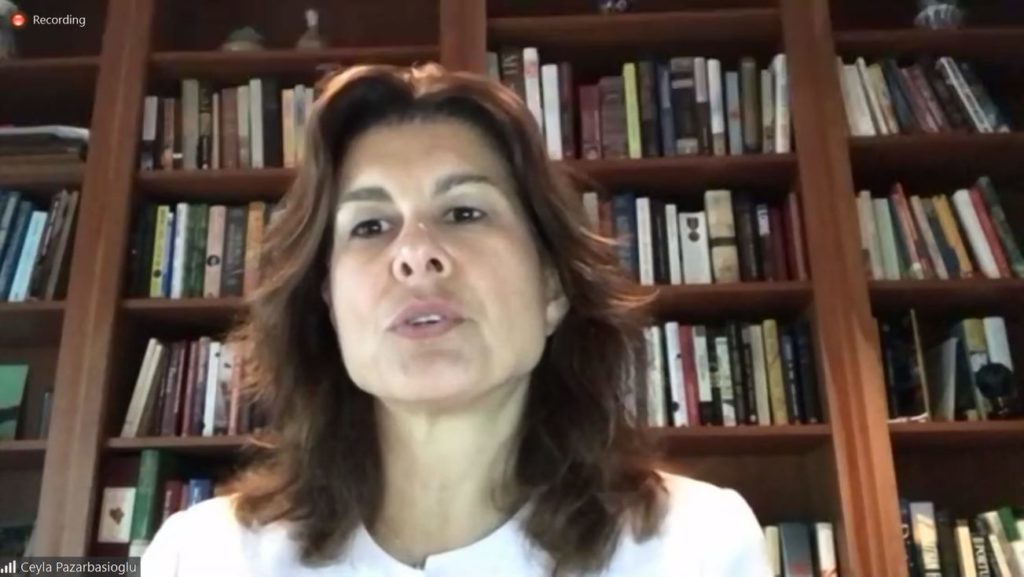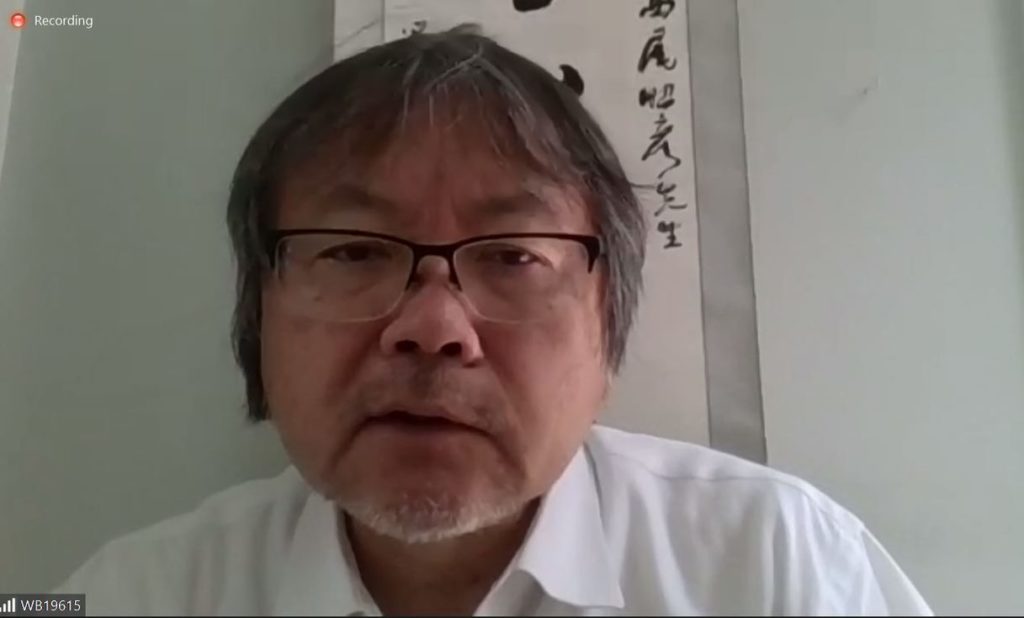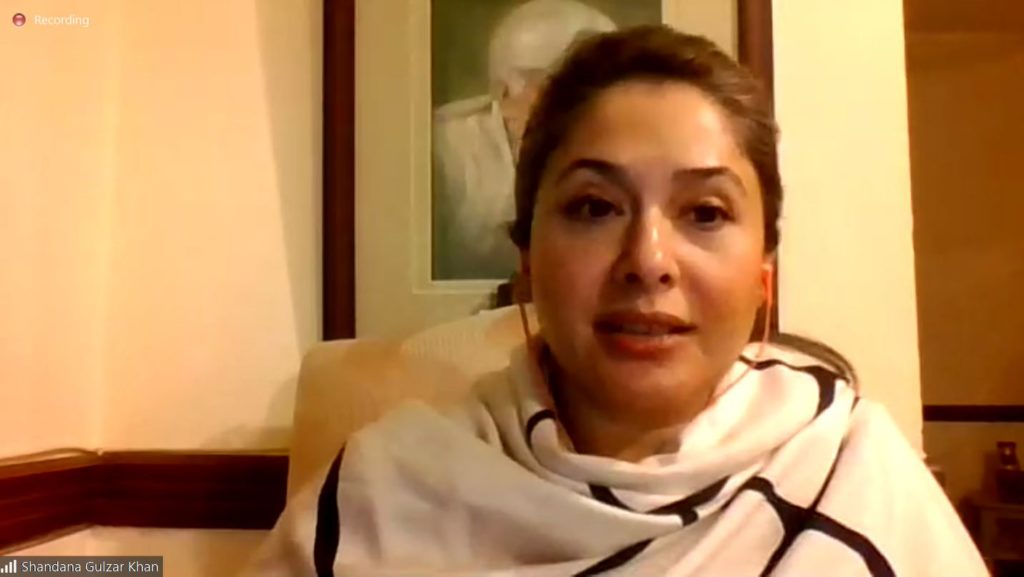On 9 July 2020, the Parliamentary Network on the World Bank & IMF (PN) jointly organized with the World Bank Group (WBG) a Virtual Parliamentary Meeting on Managing Debt for a Resilient Recovery. The purpose of this meeting was to provide a platform for parliamentarians to dialogue with World Bank experts on policies and practices to strengthen their country’s debt management capacities, as well as the most effective use of the World Bank’s $160 billion in financing made available to mitigate the effects of the crisis and build back better. 92 participants from 36 countries attended the event.
Hervé Berville MP, moderator of the meeting, welcomed the participants by highlighting the importance of strengthening multilateral partnerships at a time where international cooperation is facing a major crisis. He stressed that parliaments can undertake multilateral efforts to ensure a stronger cooperation in the scope of the COVID-19 pandemic. Through the exchange of best practices and shared knowledge, he said parliamentarians are able to better understand what type of action they can implement in their respective countries and take policy recommendations back to their home parliaments.

Ceyla Pazarbasioglu, Vice President, WBG
Ms. Ceyla Pazarbasioglu, Vice President, Equitable Growth, Finance and Institutions (WBG), explained that the role of parliaments has become more important in these times of crisis since legislators approve national budgets, shape legislation and have an oversight role to ensure that funds are allocated correctly. She then presented the global debt situation before the pandemic by stating that by last December debt in emerging countries and developing markets had reached a record high due to a rise of investments and low interest rates. Ms. Pazarbasioglu stressed that the global economy will likely suffer from the deepest recession since the Second World War because of COVID-19, causing a global rise of extreme poverty and unemployment. She also expressed the concerns of the WBG about the negative impact the crisis may have on human capital.
Ms. Pazarbasioglu continued by presenting debt relief as a key element of the WBG response to the crisis, embodied by the COVID-19 Debt Service Suspension Initiative (DSSI) that reaches up to 73 countries to support their efforts in fighting the health, economic and social effects of the pandemic. She made a call to support this effort through prudent and transparent lending practices at the international level and urged international financial institutions (IFIs) to encourage common standards through analytical and surveillance work. Ms. Pazarbasioglu finished by stressing the importance of transparency in all government financial commitments and investments, and in making a substantial progress to deliver better outcomes for people in developing countries.
Aki Nishio, Vice President, Development Finance (WBG), presented the response of the WBG to the crisis, which is embodied in four key areas: (i) saving lives, (ii) protecting the poor and vulnerable, (iii) ensuring sustainable growth and job creation, and (iv) strengthening policies, institutions, and investments for rebuilding better. He said that the Bank is also playing a key role in implementing the COVID-19 DSSI by prioritizingaccess to robust levels of financial support on highly concessional or grant terms. Mr. Nishio finished by presenting the new Sustainable Finance Development Policy for IDA countries, which aims at incentivizing countries to move towards transparent and sustainable financing, and to promote the coordination between IDA countries and other creditors.

Aki Nishio, Vice President, WBG
Kevin Watkins, Chief Executive of Save the Children, explained that only by coming together through institutions like the WBG, it is possible to combat the shared risk presented by COVID-19. He said that children are a highly vulnerable group since the pandemic has caused increases in children malnutrition, child mortality and a crisis in the educational sector. He stated that debt management has also an impact on children’s education and immunity since some countries are spending more in repaying debt than in their own citizens. Mr. Watkins acknowledged the effort made for repayment suspension by bilateral creditors, however, he made a call to private institutions to participate in this common effort and encouraged parliamentarians to work on ensuring full participation in debt relief.
The Rt Hon. Liam Byrne MP, Chair of the Parliamentary Network on the World Bank & IMF (PN), presented debt as a highly political issue since the challenges it represents will be among the critical questions that members of parliament will navigate during the next decade. He stated that these challenges are not only about restoring the economy. Mr. Byrne explained that just transitions, the risks and possibilities of automation, and trade conflicts have to be considered when applying policies related to debt management. He finished by calling on legislators to think creatively about taxation issues in order to find new ways of fighting tax avoidance, establishing international cooperation around carbon taxes, and to boost a greener recovery.

Liam Byrne MP, Chair of the Parliamentary Network on the World Bank and IMF
Sabina Chege MP, Chair of the Health Committee, explained that Kenya received considerable financial support meant to help the country cope with the pandemic. Part of the funding from WBG was employed to transform the health sector in Kenya and to provide personal protective equipment (PPEs) to the frontline workers. She stated that policies are focused on community and social support, while considering the most vulnerable sectors of the population such as the Program on Youth Support, especially in slum areas with high rates of unemployment. Ms. Chege also highlighted the importance of supporting local manufacturers, focusing on schooling, improving the health sector and training health personnel. She ended by calling on governments to provide more social support and to strengthen transparency in debt management.
Shandana Gulzar Khan MP, Chairperson of Commonwealth Women Parliamentarians, stressed the importance of considering how automation will impact financial rules, e-commerce and gender financial inclusion in the commonwealth economies. She spoke about Pakistan’s high debt risk, which resulted from an inherited high external and internal debt. She also mentioned that the country is suffering from a historical trade deficit, which is accompanied by an economy run on consumer and debt led growth. Ms. Gulzar explained that, when the COVID-19 pandemic arrived, the President and the Parliament reacted early to prevent an economic fallout. She stated that amidst the crisis, 76% of GDP is aimed at repaying internal and external debt, and then made a request to IFIs to suspend debt payments during the pandemic.

Shandana Gulzar Khan MP, Pakistan
Cornelius Mweetwa MP presented the case for Zambia and suggested that legislators must work together to approve the granted external loans. He stressed the importance of giving parliamentarians more influence on the formulation and the implementation of the budget and encourage decentralization so the money can be directed to the recipients instead of passing first through ministries and provinces. Hon. Mweetwa explained that Zambia has been allocating grants in providing requisites needed to prevent the rise of infections and care for those already infected. Also, he emphasized that the country has been directing World Bank money to specifically target vulnerable people and establish social programs. He ended his presentation by expressing his concerns about unemployment and the loss of income in the private sector.
During the discussion parliamentarians expressed their concerns about the current situation and asked questions related to the requirements for debt relief, and the means provided by IFIs to ensure the proper allocation of loans. Ms. Pazarbasioglu responded that transparency is essential in ensuring that the funds are used to protect lives and impact livelihoods. She also highlighted the importance of developing local capital markets and undertaking reforms to increase employment in the private sector. Mr. Nishio said that the WBG is working to support institutional strengthening and monitor the flow of funds. He also stressed the importance of undertaking reforms to remove barriers for the private sector’s participation in economic development, and to facilitate the registration of businesses and the acquisition of land.
Concluding the meeting, Hon. Byrne emphasized the need of sharing knowledge between parliamentarians since it is an essential mean to improve public policies in the scope of this crisis. He then highlighted the importance of working for transparency and the preservation of democracy. He closed by calling for a change in tax policies and cooperate with the private sector to achieve a greener recovery and responsible investment practices worldwide.
You can download an English summary of this event here and a French version here. To see more photos from this event please visit our Flickr page here.
